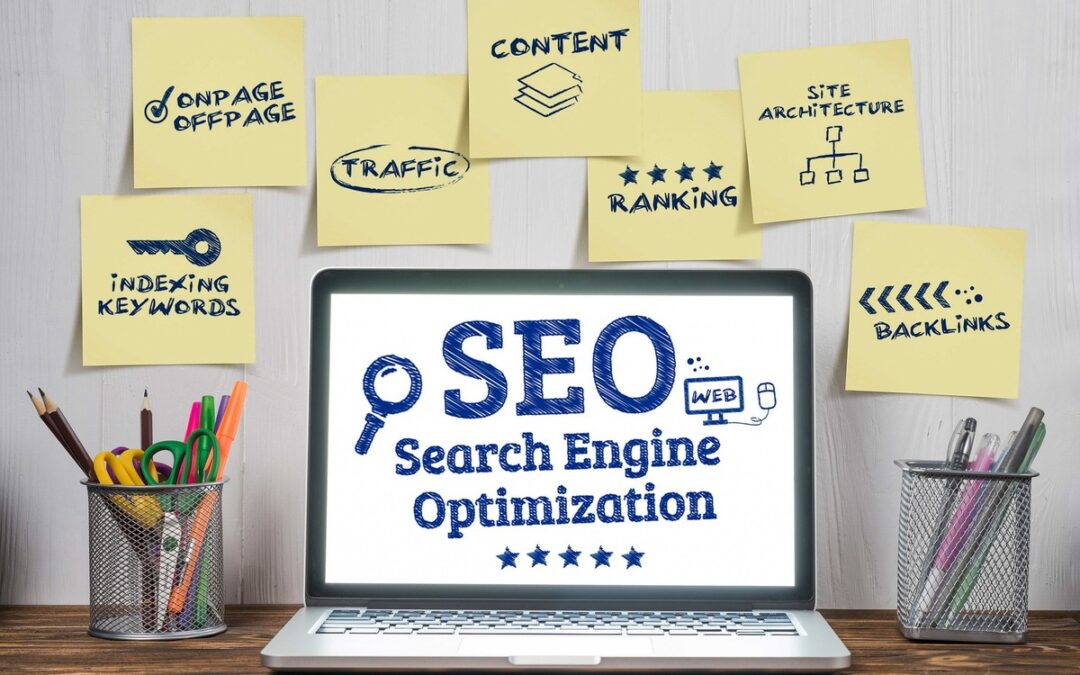The differences between SEO and PPC often come up when we are working with small business clients, and it is helpful to know the pros and cons of each when deciding where to invest in your digital presence.
When talking SEO vs PPC, we do not mean that it is necessary to choose one or the other. Ideally, a well rounded digital marketing strategy should include both. This article aims to illustrate the differences between the two, and help you decide where your focus should be and how your choice will influence your results.
Our definition of SEO:
We define Search Engine Optimization as any action taken with the intent of driving more unpaid and organic traffic to a website or web resource, and also the process of establishing credibility with search engines. And in this day and age, when people talk search engines, they are typically referring to Google.
Pros of SEO:
Unlimited Reach Potential
With PPC, you look at your budget, the cost per click, and you can get a good idea of what your max potential will be. However, with SEO, there are no budgets directly limiting the amount of clicks you may receive (But there isn’t anything guaranteeing traffic, either)
Not Directly Paying for Clicks
If SEO is a good fit for your business, it can far outperfom PPC when talking in terms of return-on-investment. For example, the Cost-Per-Click (CPC) for lawyers is typically very high in most markets. With SEO, it may be vastly cheaper to beat the competition organically over time rather than getting into a bidding war on expensive keywords.
Higher Consumer Trust
Good rankings are a status symbol. When you control a good market share organically, it is a hat-tip to customers that typically signifies that you are big in your industry, or are a reputable resource for something they are trying to learn about or buy.
Cons of SEO
SEO is Typically Slow
Unfortunately, SEO in general is a relatively slow process. It takes time for Google’s robots to crawl your site, and longer for it’s algorithms to make sense of the changes happening around your site. However, unlike PPC, your efforts won’t instantly dry up when the budget runs out.
SEO Can be Unpredictable
There are many different platforms that allow the fine-tuning of who comes to your site and for what purpose. SEO isn’t exactly like that. You can target highly specific queries, and definitely get what you need accomplished, but we often find sites ranking for random keywords that are entirely unrelated. With PPC, this can be filtered out using negative keywords – but with SEO it isn’t as easy, but it’s not that big of a deal anyways.
Our Definition of PPC:
When talking Pay-Per-Click or PPC advertising, we mean any traffic that has been purchased by the click. With PPC, you can essentially buy targeted traffic to reach your website – and in doing so, get it in front of many eyes that it might not have otherwise. Great examples of PPC are Google Adwords, Facebook, and Instagram, all of which have PPC cost models.
Pros of PPC:
Fast Results
The beauty of PPC is that you can have a campaign rolling in as little as a day, and instantly be page one for your target terms. While optimizing the campaign can take a bit, you can get the phone ringing almost immediately.
Very Targeted Audience
When done properly, you will only be paying for potential leads that are actively searching for your products or fit a very specific criteria of your ideal customer. This way, you have fine control of how your money is spent.
Very Measurable
Paid campaigns are easy to track. Using conversion tracking and tracking phone numbers, you can learn almost exactly what your acquisition cost is of a new customer and make business and marketing decisions based on that information.
Cons of PPC:
You are limited by your budget and cost per click
Unlike SEO, when the budget runs out, your amazing campaign is as useful as a Ferarri without gas! This can be particularly troublesome in high cost-per-click industries. If you have a lower budget, it may only lead to 1 or 2 clicks a day. While these are typically highly qualified clicks, it might not have the boost you expect from a digital marketing campaign. Or, if these are high value and likely to convert consumers, you may do just fine.
Less Trusted by Consumers (Sometimes)
For the longest time, I personally assumed ads were a bad thing and many people I’ve spoken to for various reasons don’t click ads either. It may be a leftover stigma from the shady internet advertising days of the 90’s, who knows. Whatever the case, depending on the group you are targeting, there may be an aversion to ads. On the flip side of things, there are many who don’t even realize that ads are served in search.
You Only Appear Where You Pay For
With SEO, the reason why it is so hard to track is because it develops traffic in many, many places. When done right, your business information and listing will be passed around by many different directories and social networks and will create a snowball effect of potential advertising opportunities. With PPC, you are appearing in a predefined set of locations.
Which one is right for you?
The most common question we are asked is whether to invest in PPC or SEO when beginning to develop or enhance the digital presence of a business. If budget allows, both is best. But that isn’t always the case, and that makes it a tough question to answer.
Every business has unique digital marketing needs
In a perfect world, the choice between SEO and PPC would be clear cut. However, there is many factors that affect an educated choice. Things such as cost-per-click, local competition on either channel, and how and where your customers make their buying decisions, all have a great part to play in deciding which avenue is better for you to invest in.
Every Business Owner has different goals
Your choice should also be heavily based on what your goals are. When we are approached by a potential client, alot of times it is when there is a lull in the normal course of business. In this case, PPC is the go-to option to get the phone ringing and the orders moving.
If things are going fairly smooth but could be better, SEO is a long term strategy and over time can benefit a business greatly. *But* SEO requires patience, and if the bills are coming in and the customers aren’t, PPC might be the better option.
Every Business Model is Different
Your business model and the way your industry operates plays a great role in which choice may be best. To illustrate these differences, we’ll take a look at two very different hypothetical businesses.
The Local Pizza Place:
If you run a local pizza place, it is likely you will see the most significant change from a PPC platform such as Google Adwords. The reason for this being that buying a pizza isn’t a life-changing decision, and intense research isn’t a likely factor – so the strategy of targeting long, specific keywords to rank for isn’t as effective. For example, the phrase “12 inch Deep Dish Pepperoni Pizzas in Warwick RI” is easy to rank for, but it’s more likely your customer is searching for “Pizza Places Near Me”
In this case, it’s more likely that an Ad triggered by “Pizza Delivery” with a call button will generate better results for your business much quicker and cheaper than a well thought out SEO strategy. While SEO shouldn’t be ignored, I always recommend taking the low hanging fruit first and use the profits to re-invest in other channels.
The Local Real Estate Company:
With Real Estate, a family buying a home will take much more time to research their decision. It is unlikely that the click-to-call button will generate as much immediate results as it would for our pizza example. While PPC is a good option to get the ball rolling, good SEO here can pay dividends later.
The amount of research performed by those in the market for real estate leaves many opportunities for marketing that weren’t possible with our previous example. Targeting Long-Tail Keywords such as “Single Family Homes in City, State” with SEO geared content over time can build a strong, unshakeable digital presence that can be supplemented with PPC later.
In Conclusion…
As you can see, there are many factors in which to base your decision on when deciding where to focus your digital marketing efforts. As stated before, we believe a well rounded marketing strategy to include both SEO and PPC – and our goal is to get your business to a point where investing in both is possible.
If you would like to discuss your options, feel free to contact us for a free consultation.






0 Comments